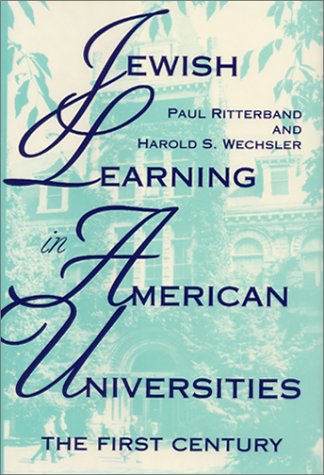The Modern Jewish Experience
1 total work
Jewish Learning in American Universities
by Paul Ritterband and Harold S. Wechsler
Published 1 December 1994
"An authoritative study of the emergence of Jewish studies on the American campus...coherent and insightful." - "Kirkus Reviews". "...the standard reference for the growth of Jewish studies in American universities.- "American Historical Review". "...a clear and informative discussion of the tortured struggles for academic inclusion waged by advocates of Jewish studies." - "Contemporary Sociology". "...a thorough and stimulating account of the beginnings of a process of great significance in American Jewish history." - "American Jewish History". The emergence of Jewish studies, now a commonplace on American campuses, reflects American Jewry's struggle first for acceptance and then for continuity. "Jewish Learning in American Universities" narrates the evolution of the field within the history and sociology of higher education in America. Whereas in Europe Jewish learning had traditionally been the province of religious schools, American Jews, seeking acceptance and recognition, came to view American universities as vehicles for educational, cultural, and social advancement.
Reciprocating Jewish communal interest, six leading American universities took the lead in instituting Judaica appointments in the late nineteenth century. Drawing from university and private archives, Paul Ritterband and Harold S. Wechsler offer a fascinating account of the circumstances behind the early appointments in Judaic studies, the tensions between university administrations and community sources of funding, the strong and conflicting personalities often involved, and the changing rationales for Jewish learning, as Jewish studies programs burgeoned on American campuses in the second half of the twentieth century.
Reciprocating Jewish communal interest, six leading American universities took the lead in instituting Judaica appointments in the late nineteenth century. Drawing from university and private archives, Paul Ritterband and Harold S. Wechsler offer a fascinating account of the circumstances behind the early appointments in Judaic studies, the tensions between university administrations and community sources of funding, the strong and conflicting personalities often involved, and the changing rationales for Jewish learning, as Jewish studies programs burgeoned on American campuses in the second half of the twentieth century.
